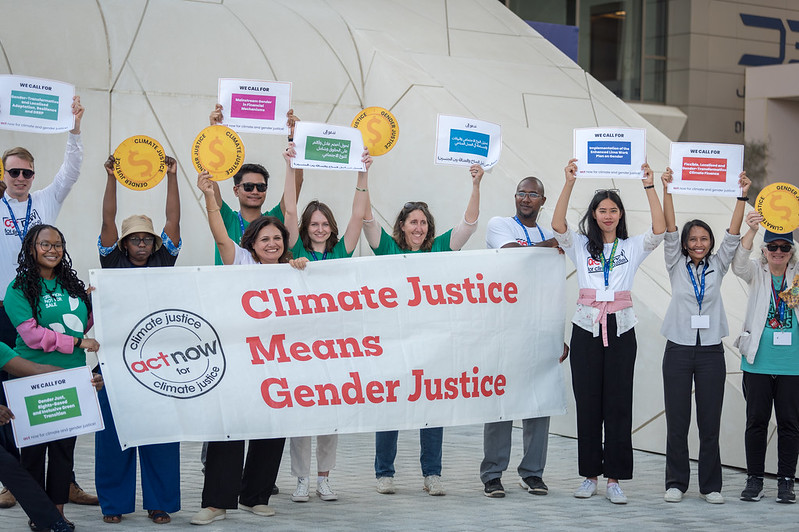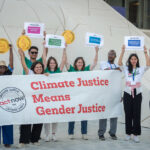
By Elena Cedillo
On the road to Baku, Azerbaijan and COP29, the Bonn Climate Change Conference (SB60), now beginning its second week, is an important milestone in climate negotiations.
The conference will specify what the conclusions of the Global Stocktake (GST) mean for the next set of Nationally Determined Contributions (NDCs). Country representatives must address elements of transparency and reporting while preparing to resolve outstanding issues on carbon markets and voluntary cooperation mechanisms.
Week one milestones
Parties are divided on the focus of this dialogue. Some believe it should focus solely on finance, using it as a platform to follow up on developed country commitments under the New Collective Quantified Goal (NCQG). Others argue for a broader scope that includes all outcomes of the Global Stocktake.
New Collective Quantified Goal target debated
The NCQG is set to be adopted at COP29 in Baku later this year. Tough questions about the quantity and quality of climate finance will need to be answered. The new target is expected to build on the previous goal of mobilising $100 billion from developed countries for climate action in developing countries.
Meaningful climate finance is important to ensure enhanced climate action for mitigation, adaptation, and loss and damage. Yet the amount of climate finance needed is still under debate. Different figures have been proposed by the negotiating parties and civil society organisations. So far, “trillions” are needed.
Gender and climate need stronger text
The first three days of SB60 featured a workshop on Gender Action Plan (GAP) implementation. Preliminary results of the GAP implementation review were shared, and the World Café methodology was used in reflection sessions. Both Parties and Observers participated, but some reflection sessions were closed to observers and results were not shared in plenary.
Parties need to simultaneously improve and continue GAP implementation to produce a new, higher quality GAP with a longer period for implementation, concrete targets and indicators, and more clarity on roles and responsibilities.
A stronger draft text on gender and climate would urge all Parties to designate and support a national focal point on gender and climate change for negotiations, implementation, and monitoring. It should call for the inclusion of women in leadership positions within delegations, the sharing of best practices, and the integration of key components of the GAP into Nationally Determined Contributions (NDCs) and National Adaptation Plans (NAPs). It is essential to align gender-responsive NDCs and NAPs with national development planning in a manner consistent with the objectives of the Paris Agreement.
Week two begins: June 10 to 13
Parties have much to discuss and agree on during this second week. There is no denying the devastation that many vulnerable communities are suffering from both extreme weather and slow onset events due to climate change.
The week will begin with the SB60 co-chairs presenting a revised version of the NCQG text. There is broad agreement to discuss transparency and qualitative issues such as access, gender, and Indigenous rights.
While the quantum, or amount due, is under discussion, the parties must reflect the seriousness of their intent and raise the level of ambition, as well as guarantee grants instead of loans.
WIM review
Parties are discussing the terms of reference for the Warsaw International Mechanism (WIM) review. The third and final Glasgow Dialogue (GD3) focused on the need for fit-for-purpose coordination among the UNFCCC Loss and Damage bodies (Warsaw International Mechanism (WIM) Ex-com; Santiago Network (SN); Loss and Damage Fund) to strengthen the Loss and Damage finance regime within and outside the UNFCCC. Discussions are focused on the scope of the WIM review, whether it will focus on WIM performance, and a review of its functions. Parties have agreed on the need for more clarity in the proposed text.
Loss and Damage Fund needs
What is needed from the Loss and Damage Fund? Direct access and rapid disbursement of loss and damage financing, and inclusion of the most vulnerable: women, boys and girls, Indigenous peoples, and displaced persons.
NAP progress slow
COP28 called on Parties to have their National Adaptation Plans (NAPs) policies and planning processes completed by 2025 and to have progressed in implementing them by 2030. To date, only 53 countries have submitted their NAPs. Nevertheless, parties at SB60 are discussing them. A draft decision text on NAPs will be submitted to COP29.
Parties have a proposed text to guide further NAP discussions during week two. Key points include the need for a clear distinction between the formulation and implementation of NAPs, recognition of vulnerable countries’ exceptional circumstances, and support from developed to developing countries as outlined in the Paris Agreement.
Further discussions will need to clarify the role of private sector sources in the formulation and implementation of NAPs. Reliance on loans is not a viable solution for NAP implementation.
Elena Cedillo, LWF Program Executive for Climate Justice and ACT Climate Justice Reference Group co-chair.
